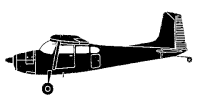
ASN Wikibase Occurrence # 216895
This information is added by users of ASN. Neither ASN nor the Flight Safety Foundation are responsible for the completeness or correctness of this information.
If you feel this information is incomplete or incorrect, you can submit corrected information.
| Date: | Tuesday 30 October 2018 |
| Time: | 09:24 LT |
| Type: |  Cessna 180D Skywagon |
| Owner/operator: | Private |
| Registration: | N6414X |
| MSN: | 18050914 |
| Year of manufacture: | 1960 |
| Total airframe hrs: | 8190 hours |
| Engine model: | Continental O-470 SERIES |
| Fatalities: | Fatalities: 0 / Occupants: 1 |
| Aircraft damage: | Substantial |
| Category: | Accident |
| Location: | near Lake California Air Park (68CA), Cottonwood, CA -
 United States of America United States of America
|
| Phase: | Approach |
| Nature: | Private |
| Departure airport: | Palo Alto Airport, CA (PAO/KPAO) |
| Cottonwood, CA (68CA) | |
| Investigating agency: | NTSB |
| Confidence Rating: |
The pilot was approaching the destination airport at an altitude of about 1,500 ft about 1.5 miles from the runway threshold, when he attempted to add power by advancing the throttle, but "nothing happened." He "cycled" the mixture and the magnetos, but there was no change, and the airplane descended below the desired glidepath. The pilot did not use carburetor heat during the approach, and he did not apply it following the engine's failure to respond to the advanced throttle setting. The pilot chose to conduct an off-airport landing in a field, during which the airplane stalled while the pilot attempted to maneuver over power lines.
There was no evidence of any fuel or oil leaks, thermal or fire damage, or any nonimpact-related deficiencies or damage. During a test run, the engine started and functioned normally, except that the maximum rpm achieved was slightly below the design specification. The examination and testing did not reveal any mechanical reasons for the power loss reported by the pilot.
The ambient temperature and dew point in the area of the accident site about the time of the accident were conducive to the development of carburetor icing. Given the lack of mechanical anomalies and the pilot's failure to apply carburetor heat during the descent and following the engine's lack of response to the power increase, it is likely that the engine developed carburetor ice during the approach at the reduced throttle setting, which resulted in the engine's failure to respond to the pilot's throttle change. The pilot's failure to apply carburetor heat during the reduced power descent was contrary to the airplane manufacturer's Owner's Manual guidance.
Probable Cause: A partial loss of engine power due to carburetor icing as a result of the pilot's failure to apply carburetor heat during a reduced-power approach descent.
Accident investigation:
 |
|
Sources:
NTSB WPR19LA017
FAA register: https://registry.faa.gov/aircraftinquiry/NNum_Results.aspx?NNumbertxt=N6414X%20
Location
Media:
USA, CA, Lake California. A pilot in a Cessna 180 plane crashed Tuesday morning at Lake California. The pilot survived.https://t.co/U79pe7SYxL pic.twitter.com/zb9IyfT6vX
— Planes Of Legend (@PlanesOfLegend) 30 octobre 2018
Revision history:
| Date/time | Contributor | Updates |
|---|---|---|
| 30-Oct-2018 17:16 | Rchb462 | Added |
| 30-Oct-2018 18:08 | Aerossurance | Updated [Location] |
| 30-Oct-2018 19:44 | Rchb462 | Updated [Source] |
| 30-Oct-2018 19:57 | Iceman 29 | Updated [Source, Narrative] |
| 30-Oct-2018 20:01 | Iceman 29 | Updated [Embed code] |
| 30-Oct-2018 23:55 | Geno | Updated [Aircraft type, Operator, Location, Phase, Destination airport, Source, Embed code, Damage, Narrative] |
| 08-Jul-2022 18:54 | ASN Update Bot | Updated [Time, Other fatalities, Departure airport, Destination airport, Source, Embed code, Narrative, Category, Accident report] |
Corrections or additions? ... Edit this accident description
The Aviation Safety Network is an exclusive service provided by:


 ©2024 Flight Safety Foundation
©2024 Flight Safety Foundation